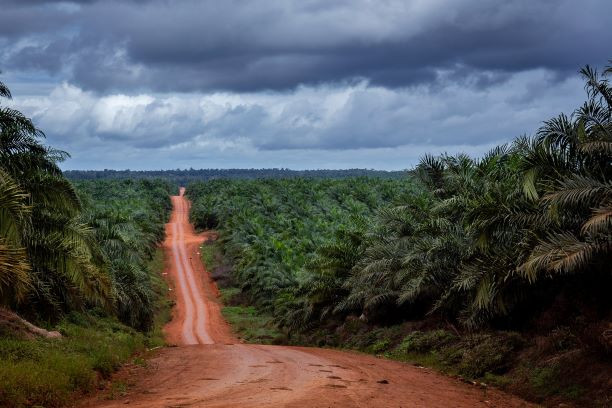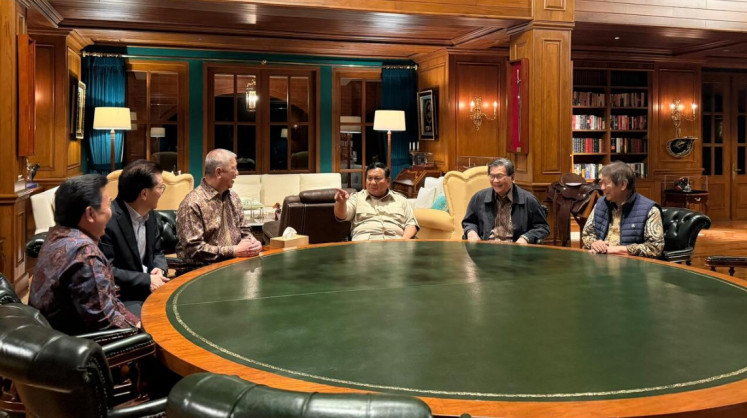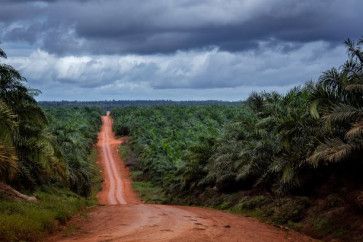Popular Reads
Top Results
Can't find what you're looking for?
View all search resultsPopular Reads
Top Results
Can't find what you're looking for?
View all search resultsWhat next after the EU’s deforestation law is adopted?
We cannot help but conclude the legislation reflects the politicization of the global concern with climate change into a discriminative trade policy against palm oil, the most-competitive vegetable oil in the world.
Change text size
Gift Premium Articles
to Anyone
T
he European Parliament adopted on April 19 a new law to fight global deforestation, one of the main culprits of climate change and biodiversity loss, despite strong opposition from developing countries and the big question about the complexity of its enforcement.
The deforestation-free law will be enforced for palm oil and its derivatives, cattle, cocoa, coffee, soya, wood, rubber, charcoal and printed paper products, but will not apply to big and medium-sized companies until 18 months later, and 24 months later for small and micro enterprises.
While no country or commodity will be banned, companies will only be allowed to sell products in the European Union if the supplier of the product has issued a so-called “due diligence” statement confirming the product does not come from deforested land nor has it led to forest degradation, including of irreplaceable primary forests, after Dec. 31, 2020. Companies will also have to verify these products comply with the relevant legislation of the country of production, including on human rights, and the rights of affected indigenous people have been respected.
The European Commission will use its unilaterally set benchmarking system to classify countries, or parts thereof, as low-, standard- or high-risk based through an objective and transparent assessment within 18 months of this regulation entering into force. Products from low-risk countries will be subject to a simplified due diligence procedure.
The proportion of checks is performed on operators according to the country’s risk level: 9 percent for high-risk countries, 3 percent for standard-risk and 1 percent for low-risk. This is a discriminative policy as the law will be applied differently to countries.
Certainly, after more than two decades of aggressive negative campaigns against palm oil by green NGOs with support from EU vegetable-oil producers, Indonesia, the world’s largest palm oil producer, will automatically be perceived to be a high-risk country, thereby subject to tight, complex due diligence with its time-consuming and costly bureaucratic process before entering the EU market.
Yet more damaging is the law also unilaterally imposes an obligation of origin-tracing by using geolocation of where the products are farmed. The competent EU authorities will have access to relevant information provided by the companies, such as geolocation coordinates, and conduct checks with the help of satellite-monitoring tools and DNA analysis to check where products come from.



















